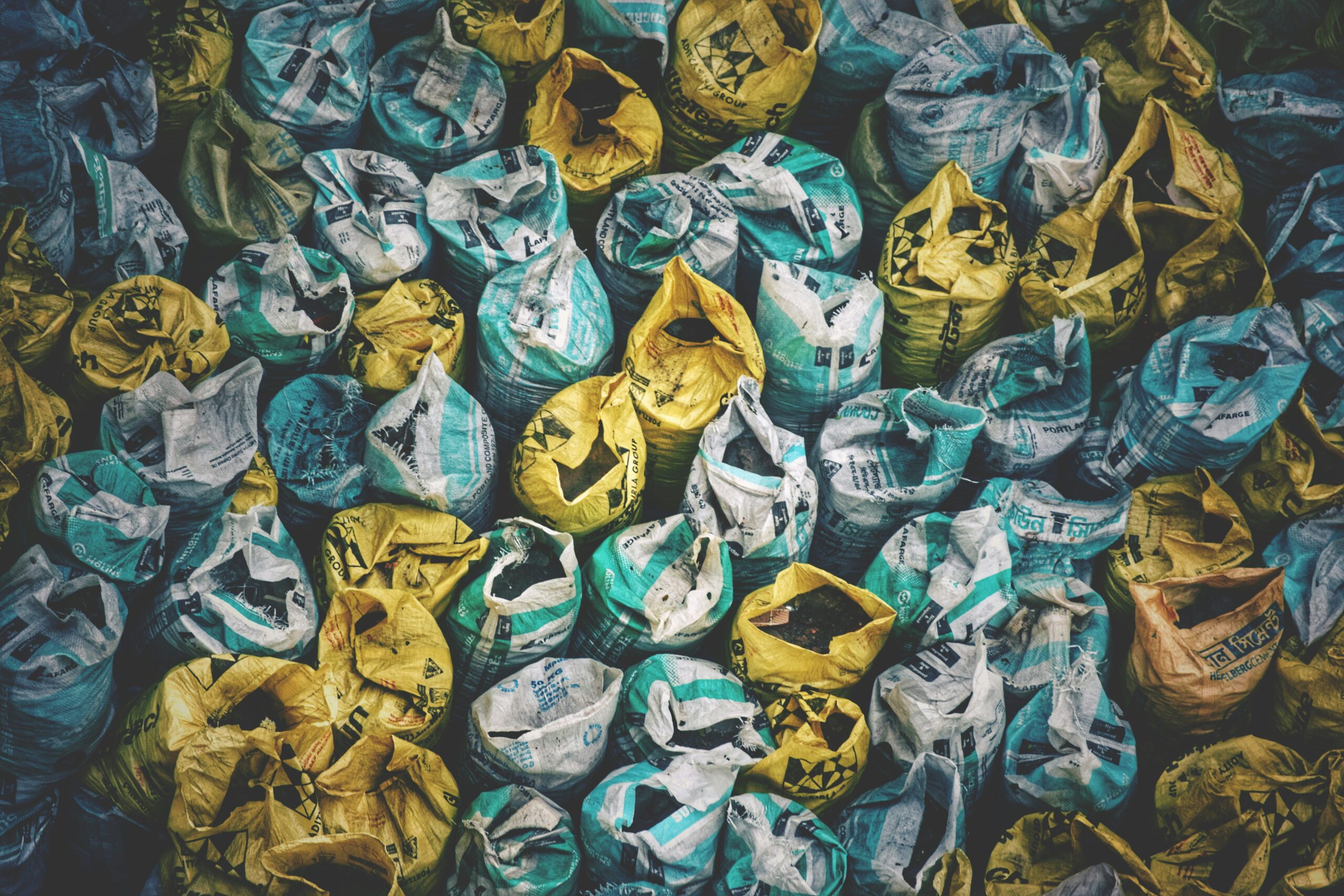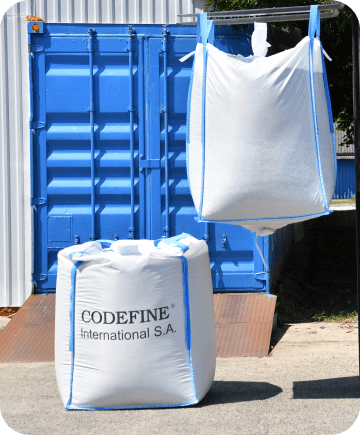Home » Posts Page » Blog » Benefits of Recycled Polypropylene for Sustainable Packaging

Along with polyethylene, polypropylene (PP) is one of the most widely-used thermoplastic polymers on the planet. It’s used for countless applications across many industries, with everything from the agricultural to the retail sector utilising this hard-wearing and versatile material. While it’s often used to create plastic consumer goods, it’s particularly popular as a packaging solution.
Polypropylene might be readily available and reasonably cheap, but recycled PP is even more affordable. While polypropylene itself is a recyclable material, strict measures need to be put in place to ensure the finished material is suitable for use.
Every recycling step needs to be carried out within a closed-loop system, with reconditioned material undergoing intensive cleaning before it can be repurposed into new products and packaging. Sadly, only a tiny fraction of polypropylene is actually recycled, with a mere 1% redirected to recycling schemes. The rest ends up in landfill or is incinerated, with both methods of disposal resulting creating all manner of hazards.
Recycled polypropylene is an incredibly versatile material and relatively inexpensive to produce. While the process isn’t always straightforward, the benefits of this versatile material make recycling a worthwhile endeavour.
The PP recycling process starts by separating polypropylene from other plastics and removing any contaminants.
Once material has been separated and cleaned, a process called sink-float separation is used to sift polypropylene from other polymers. As it has a lower density than other plastics, polypropylene rises in water, while denser ones sink. Once polypropylene has been successfully separated from other plastics, it’s melted down at high temperatures until it forms into a liquid. This liquid is then quickly cooled, creating tiny pellets. These pellets can then be used by manufacturers to form new plastic products, including Earth-conscious FIBC bags and recycled polymer packaging.
Few plastic products are made from wholly recycled material. However, it does make up a sizable proportion of many finished products. Take FIBC bags as an example. On average, the recycled content in bulk bags amounts to 20%, but can be as high as 30%.
Extracting the raw materials used to produce new plastic and fuel the manufacturing process is expensive. Green polypropylene bags produced using recycled materials can reduce these costs considerably.
As the cost of producing recycled polypropylene is markedly cheaper than virgin material, these savings are reflected in the sale price of products and packaging made from it.
Along with positive environmental impacts, recycled polypropylene brings many economic benefits. Whether it’s green packaging bulk handling solutions or sustainable carrier bags, choosing recycled materials means businesses and consumers alike have a more eco-friendly option, lessening global demand for virgin materials.
This can result in cheaper and more accessible raw materials, while the relatively low cost of recycling polypropylene means that production costs are reduced. From the manufacturer of plastic consumer goods to eco-responsible packaging choices, producers looking for a more affordable alternative can turn to recycled polypropylene as an affordable solution.

Recycled polypropylene is used by many industries. It’s a popular choice in the automotive industry, where recycled PP is used to produce spare parts and essential components.
However, it’s more widely used for eco-packaging in industries across the board. In retail, circular economy packaging is becoming the standard, while bottles and containers made from recycled PP are common in the chemical and pharmaceutical industries.
Below, we’ll take a look at a few sectors where recycled polypropylene packaging is most common.
While recycled products tend to receive a bad rap as being second rate to virgin materials, they’re an effective and reliable packaging choice in the food industry. Provided that robust standards have been adhered to, recycled polypropylene is as well-suited to food packaging as new materials.
High-quality recycled PP can be marked as food-grade, making it safe for food contact and a dependable sustainable bulk transport solution. What’s more, breakthrough developments in polypropylene recycling is improving the food safety credentials of the material, broadening its future applications in the food packaging sector.
The construction industry is another sector where recycled propylene use is widespread. The sector produces a significant amount of plastic waste, with plastic packaging of construction materials accounting for most of it. In the UK alone, around 5 million tonnes of plastic packaging waste is produced annually, with around 40% of this sent to landfill.
Unfortunately, plastic packaging is an essential for this sector, with its durability and low cost making it a reliable choice for protecting valuable building materials. While much of this material is single-use, a substantial amount can actually be recycled. Eco-centric bulk packaging made from polypropylene is one such material. Companies that commit to a recycling mentality can dramatically reduce packaging costs, while doing their bit for the planet.
Even when compared to other types of plastic, polypropylene is incredibly durable and scores top marks for versatility. This makes it an obvious choice for agricultural packaging. Low-impact FIBC bags can be used to house and transport things like fertiliser and also makes an ideal solution for storing animal feed and perishables intended for human consumption.
Packaging used in the agricultural sector needs to be particularly robust, suitable for heavy loads, and able to withstand the elements. Provided that proper manufacturing methods have been observed, bags made from recycled polypropylene can prove just as resilient as packaging made from new materials.
Recycled PP bags aren’t just a smart choice if you’re looking to lessen your impact on the environment and embrace more sustainable supply chain solutions, they’re also a cost-effective addition to your operation. Thanks to reduced material costs, planet-friendly FIBC bags are markedly cheaper than bags manufactured from virgin polypropylene.
As well as helping you protect the bottom line, green footprint packaging is an efficient and reliable choice. Recycled packaging is just as durable as traditional products, making them suitable for use across a wide range of industries. Recycled polypropylene is also readily available, sidestepping potential issues with material shortages and supply chain bottlenecks.
If you’re looking for green logistics solutions and set an example with environmental stewardship in packaging, why not explore Codefine’s full range of recycled PP products?
Whether you’re looking for customizable small bags, multi-layer BOPP bags, or paper woven PP bags, you can count on the utmost in quality and affordable prices. Keen to learn more about our range? Get in touch to arrange a quote today.